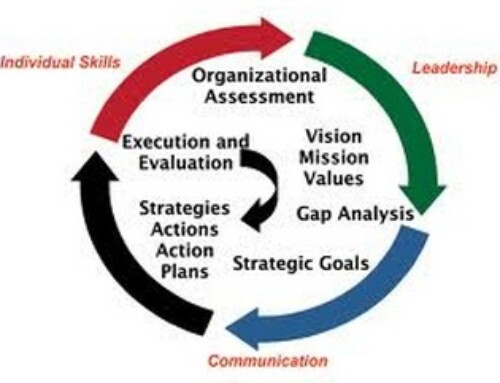 For years now we have been pointing out that in the not too distant future mobile technology will be the most important part of an MLS system. In fact, we have noted that mobile technology will, in fact, be the MLS system. That distant future is here and mobile is finally coming of age. We are seeing more advances in MLS mobile technology over the last year or so than we have seen since mobile was introduced. These advances in mobile, however, also bring some very interesting questions.
For years now we have been pointing out that in the not too distant future mobile technology will be the most important part of an MLS system. In fact, we have noted that mobile technology will, in fact, be the MLS system. That distant future is here and mobile is finally coming of age. We are seeing more advances in MLS mobile technology over the last year or so than we have seen since mobile was introduced. These advances in mobile, however, also bring some very interesting questions.
All MLS vendors today have some form of a mobile solution. Most have offered some form of web app (mobile browser access) and some of these, apps, are pretty decent and even offer some deeper integration with the MLS system. Most web app products offered, however, have been largely “search apps” with fairly limited functionality.
CoreLogic, the leader in the MLS system arena, while offering various web apps over the past several years for their different MLS products, now partner with Doapp to supply mobile native apps (apps for specific mobile devices, i.e. iPhone,Android, etc). Their partner, Doapp, a major mobile technology developer, provides entertainment apps, lifestyle apps, advertising apps to name a few in addition to real estate with CoreLogic. Moving forward, they are promising to become more tightly integrated with the CoreLogic MLS systems where they have an exclusive agreement in the real estate space. This emergence of strong 3rd party mobile products brings up my first question:
Will this trend continue with other MLS vendors that have shied away from internal native app development?
MLSs, as they look for mobile technology options, realize there are some very attractive 3rd party options in the mobile space beyond those offered by their MLS vendors. Companies like Prospects, Mobile Realty Apps, Smarter Agent, Goomzee and others are offering very competitive mobile products in terms of usability; functionality and price so it is no longer a slam-dunk to just go with the MLS vendor solution. So this brings me to another pretty big question.
If mobile technology is the future of MLS and MLS vendors are really not leading that charge today what does that tell us about how MLS systems may change in the not too distant future?
Fifteen years ago building an MLS system was a daunting prospect. Today, advances in technology have certainly made it much easier to play in that arena. In fairness, today’s MLS systems are deep, full featured systems that would not be easy to build on a whim, and many underestimate the years of development that have gone into making these systems work for our MLSs and how customized they are to meet the real needs of brokers and agents. But, as brokers and agents become more and more mobile and more and more of the data can be easily displayed instantaneously on mobile devices, how important will this deep functionality be? In the end, MLS is all about finding and presenting data and the more that comes to the surface, and is made easier by strong mobile technology, the more at risk traditional MLS will be. So this raises another question:
If users get to the point where they are spending all of their time accessing MLS data through a mobile device, how important will the legacy MLS system be?
Only one MLS vendor today, Solid Earth, has made the leap head first into the mobile technology world. They are creating a new MLS system called Spring, which is mobile first and simply offers desktop access as part of its overall offering. As important, they recognize that the MLS of the future must have a consumer-facing component that is totally integrated with the professional level access used by brokers and agents. Spring, however, has not been released yet so we will have to wait a bit to see if the promise lives up to the vision being shared by the Solid Earth team. What about all of the other vendors that offer mobile access simply as a product on their MLS systems? Will this have any major impact on the future of MLS?
Will There Be a Leapfrog Event?
If you remember the mid to late ninety’s when MLSs were just starting to migrate over to the Internet a number of the legacy vendors were slow to make the leap. It was understandable. They had great market share serving clients on legacy products and the last thing they wanted to do was to rock the boat. Their clients held them back as well, as they have always done by insisting that if they did create a new Internet system it had to have all the same features and functionality found in their legacy system. Then, many of these same clients chose an Internet system from another vendor that didn’t have half of these features. The lesson seems clear and begs me to ask another question:
Does Mobile MLS Technology, and the migration of our user base to mobile access, present an opportunity for a new vendor, perhaps one of the better 3rd party mobile providers or some other player, to actually enter the MLS space and grab market share?
Think back to when Rapattoni entered the MLS market with their Internet system and was able to leap frog many of the tried and true MLS vendors. Could it happen again? Is the move to mobile significant enough to cause another leapfrog event? Maybe not quite yet, but if I was an MLS vendor I’d be thinking seriously about that possibility. I would want my mobile technology to be safely in-house where I could make it core to my MLS product future.
Mobile is the new core technology. Think out 3 -5 years. How many agents do you think will be using mobile devices as their primary access device? Is your MLS positioned for these changes? The lines between core MLS and Mobile are going to blur more and more each year where one ends and the other begins. It will be interesting to see how things look three years from now and how this will impact our current MLS vendors. Stay tuned and please contact us if we can help you sort things out!





Great article Mike. I love following your thinking on this. I really do think that we are at an inflection point. Mobile is no longer an up and comer – Its here in full force and it is growing at an elaborate rate.
If you look back at 2012, USA Today was the first major publisher invert their thinking. They built their new site for mobile first, then desktop browser second. It has been a highly successful effort by most accounts. Beyond websites, application developers have begun to succeed by going with mobile first and desktop browser second. Evernote is a great example.
Microsoft’s release of Windows 8 is another indicator. The entire operating system was developed for touch and gestures, borrowing from mobile. The mouse support is an afterthought.
If I were building a new application today, I would build for the tablet first (Windows 8/iPad/Android Tablet) then port the application appropriately to mobile (iPhone/Android) and to desktop browsers (mac and PC).
Victor, thanks, good comparison. It will be interesting to see how long our MLS vendors (other than Solid Earth) ride their current products and whether any soon announce a more aggressive mobile strategy. My guess is that as long as they feel it ain’t broke they won’t fix it…the danger though is exactly what we saw with the first Internet systems. If MLSs and consumers really embrace a new mobile platform, be it Solid Earth or something we haven’t seen yet, there is going to be some major scrambling to catch up and we all know that takes time. Regardless, it’s great to see some strong 3rd party products hitting the streets. I expect a huge increase in agent mobile use with these improved tools which will, in turn, increase demands for deeper and rich functionality.